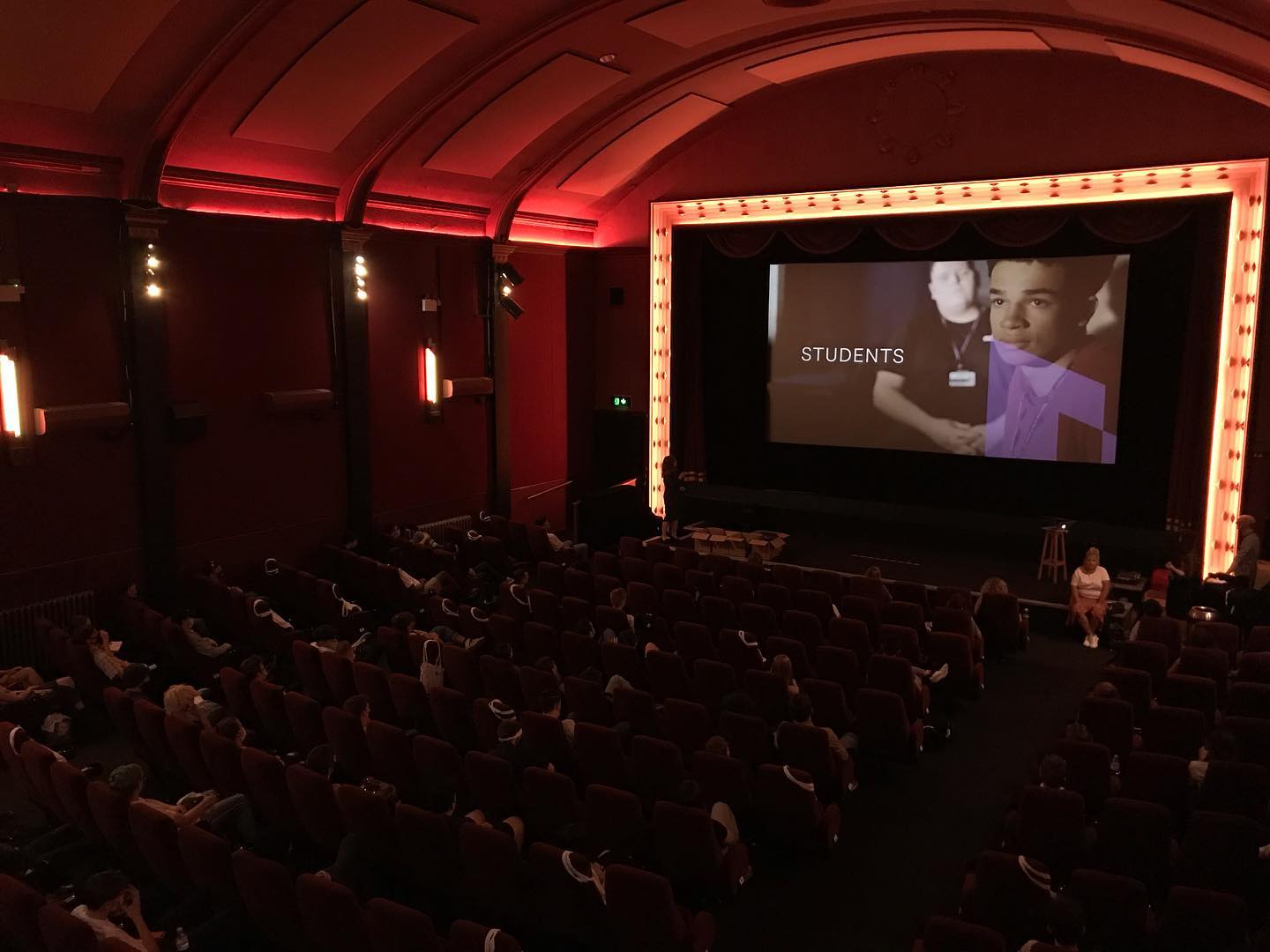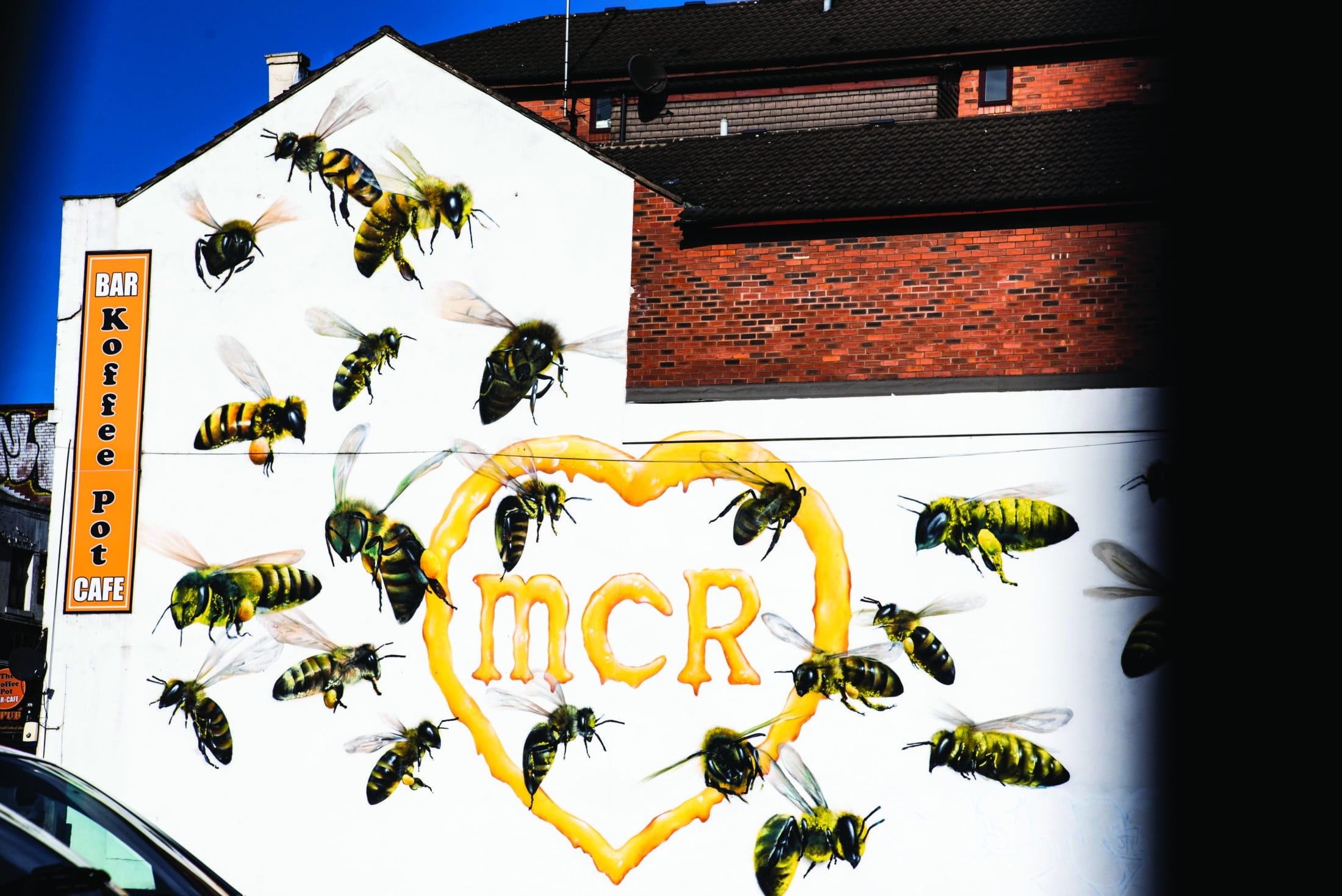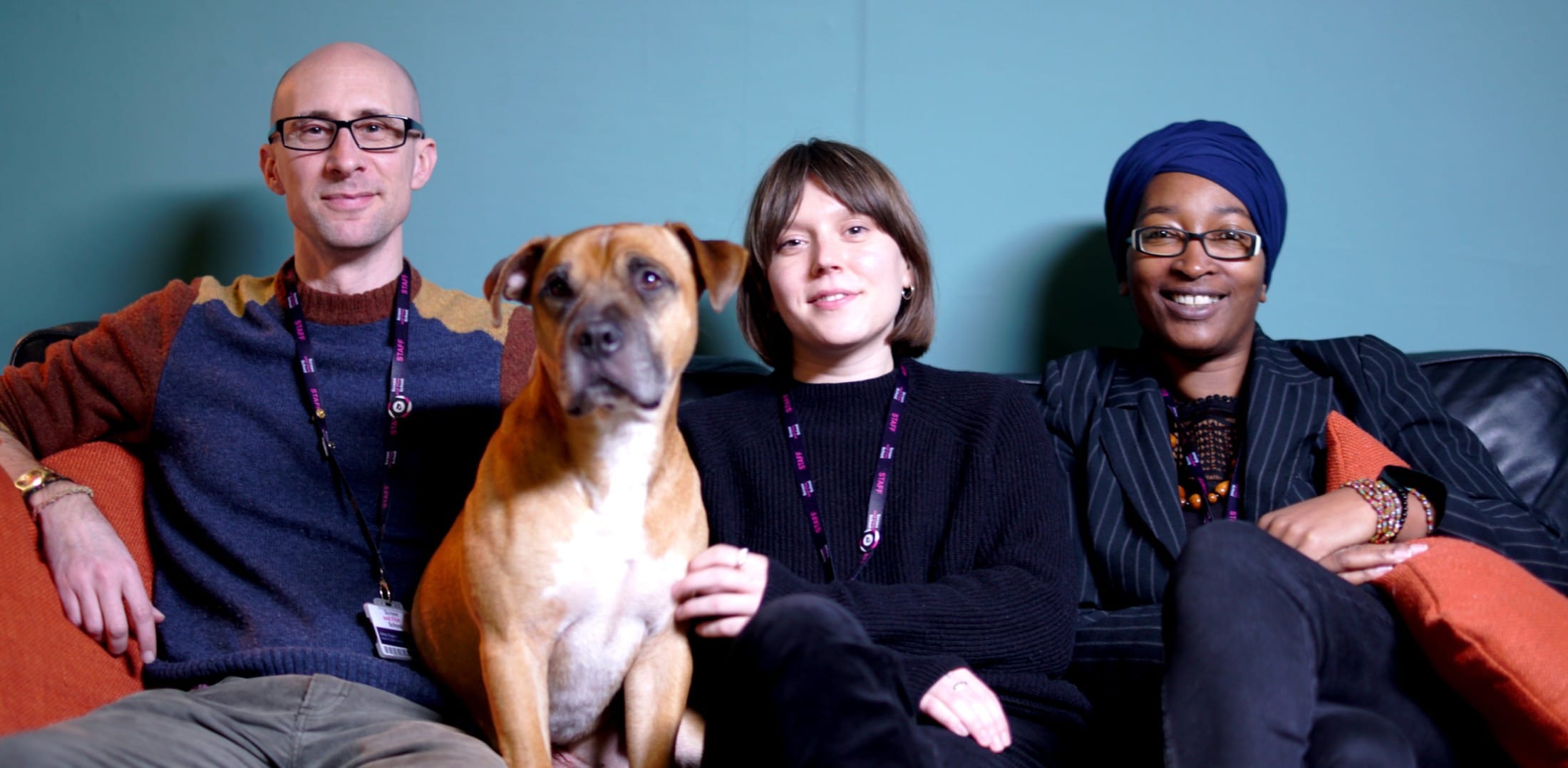Here at Screen and Film School we’ve been asking our staff and industry partners at all three of our campuses for their film and TV recommendations for this Pride Month and beyond.
Pride (2014)
“Pride (2014) is based on inspirational true events and tells the story of a London-based group of gay and lesbian activists (the LGSM) portraying their lives, loves, struggles and actions to raise money to support the striking miners in a small village in Wales during the 1984-5 strike. In a decade when a degree of homophobia was the norm, the LGSM (Lesbians and Gays support the miners) drove to a bleak mining town in South Wales to present their donations, uncertain what sort of welcome to expect. Their donations and support are rebuffed by the conservative town, but the group refuse to give up and through the film you can see friendship and understanding grow on both sides (helped along by strong female characters and some excellent dance moves). The film highlights what it means to be empathetic and when facing common enemies (Margaret Thatcher, the press, and the police) to embrace solidarity.
Although it may not be the most radical of LGBTQIA+ films, I think it records an important part of history and shows us that while we may all be fighting our own battles and societal struggles, we can always help others and be the support they may need. It is a heart-warming film, and their rendition of solidarity and the closing sequence never fails to bring a tear to my eye.” – Molly Watson, Receptionist (Screen and Film School Manchester)
God’s Own Country (2017)
“God’s Own Country is a BAFTA nominated film that challenges the dominant portrayal of queer masculinity from a rural, working-class perspective. Set in the Yorkshire countryside, the film tells the story of Johnny Saxby (Josh O’Connor), a closeted gay male who appears trapped in a vicious cycle of (resentfully) working on his Dad’s farm, binge drinking down the local pub and random (secret) sexual encounters. Highlighting the toxicity of growing up in hegemonic and heteronormative masculine culture, Johnny appears trapped in his surroundings until the introduction of Gheorghe (Alec Secareanu), a mild- mannered Romanian farm worker who transforms Johnny’s perception of both queer masculinity and racial stereotypes. Often referred to as the ‘British Brokeback Mountain’, God’s Own Country does an excellent job of tackling taboo subjects such a queer stereotypes, toxic masculinity, working class poverty, and the racial prejudice experienced by immigrants. The film is ultimately a love story that broadens the spectrum of the representation of male homosexuality, with a realism style of storytelling that is quite literally stripped back to nature.” – Carly Paton, Applicant Experience Manager (Screen and Film School Manchester)
The Birdcage (1996)
“Robin Williams plays Armand Goldman, the owner of The Birdcage, a drag club in Miami. When his son comes home to announce he’s engaged to be married, he also announces that his fiancé’s family are ultra-conservative, and that Armand must pretend to be straight when the two families meet for the first time. A remake of the 1978 French comedy, La Cage aux Folles, this concept could so easily fall apart under a lesser writer, but Elaine May’s script is so perfectly paced with humour and held up by incredible performances from both Williams and Nathan Lane that it remains a winner.”
” – Tom Boddy, Applicant Experience Manager (Screen and Film School Brighton)
Call Me By Your Name (2017)
“I’m admittedly a little late to the party with this film, having only watched it earlier this year. But, my word, what a story! Such an incredible piece of work from Luca Guadagnino with brilliant lead performances from Timothée Chalamet and Armie Hammer.
I loved the casual pacing of it. The stillness of the Italian countryside setting juxtaposed with the passion of teenage love/lust makes for such an incredibly moving story. And I love the use of humour and how supportive Mr. Perlman (the father) is of his son as he struggles to come to terms with his non-quite-unrequited love.” – James Watts, Local Marketing and Communications Manager (Screen and Film School Brighton)
The Celluloid Closet (1995)
“This documentary is a fascinating and informative overview of LBGTQ+ representation in Hollywood cinema. Great archive footage interviews and a great resource for new films to watch. About time this film was updated and given a better international perspective. If you adverse to streaming and watch discs, the DVD has another film’s worth of interviews which could easily have made the final cut.” – Neil Williams, Head of Year Three (Screen and Film School Brighton)
My Beautiful Laundrette (1985)
“Set in mid-80’s Thatcher ruled UK, this gay love story tackles issues ranging from homophobia, racism, classism to colonialism in a way that is subtly heartfelt. Staring Daniel Day-Lewis as an ex-skinhead Johnny, and his Pakistani-English boyfriend Omar played by Gordon Warnecke, they try to kick start a failing South London launderette.
The first film to be produced by English production company, Working Title, shot in 6 months on a budget of £600,000, this indie gem set afire the careers of director Stephen Frears, who made such hits as Dangerous Liaisons, High Fidelity & The Queen. And with Day-Lewis in one of his first lead roles being utterly magnetic! This film doesn’t represent the relationship between these two men as exotic, but as natural as how they are building their business together. A truly great film dealing with big issues.” – Beverley Carter, Student Support Officer (Screen and Film School Brighton)
Midnight Express (1978)
“In the late 60s and 70s films were able to explore themes that were virtually impossible to previously. While sex, swearing and violence began to populate films, the depiction of gay people remained relatively under the radar. Movies were able to actually define characters as LGBTQ+, but they were often villains or would meet a tragic fate. Sympathetic LGBTQ+ characters were tough to come by.
At first glance, the brutal prison drama Midnight Express would not seem like the place to find a sympathetic gay character. But Erich (Norbert Weisser) stands out as a light among the considerable darkness. Erich acts as the confidant and guide for our protagonist, Bill Hayes (Brad Davis in a BAFTA & Golden Globe nominated debut), who was sent to this Turkish prison for smuggling hashish from Turkey. His kindness is a wonderful tonic for the grim realities of the Turkish prison.”- Christy Hall, Marketing Coordinator (Screen and Film School)
Julieta (2016)
“Julieta is a story within a story, and I love that everyone I speak to about it has their own interpretation of the plot. There’s lots left to mystery which emulates the journey of the protagonist.
The story centers on a mother oblivious to her daughter’s internal struggles with her sexuality; she retraces their relationship to reveal how the dissonance between them began. The film does well to demonstrate that point in life where you start to see your parents as ‘people’ and vice versa for the parent, whilst also exploring how internalised guilt can shape how we navigate our lives.” – Clara Thomas, Access and Participation Coordinator (Screen and Film School Manchester)
A Fantastic Woman (2017)
“A powerful, visually stunning drama about Marina, a trans woman who has to deal with the death of her partner in a society that refuses to believe she exists.” – Joe Willis, Tyke Films
Moments That Shaped: Queer Black Britain (2022)
“Cecilia Deana, executive commissioning of BET Viacom, kindly gave her time for a Creative Conversation at Screen and Film School Birmingham recently and is celebrating Pride Month with a documentary called ‘Moments That Shaped: Queer Black Britain’– a 60 minute documentary charting key moments that shaped the history of Britain’s black queer community.” – Natalie Edwards, Head of Industry and Careers (Screen and Film School Birmingham)
The Miseducation of Cameron Post (2018)
“In 1993 after teenage Cameron Post is caught in the backseat of a car with the prom queen, she is subsequently sent away to a treatment centre in a remote area called God’s Promise. While she is being subjected to gay conversion therapies, she bonds with some fellow residents as they pretend to go along with the process while waiting to be released.
I personally enjoy this film because it highlights nuanced lesbian experiences, and explores non-binary gender through Adam Red-Eagle, a Lakota two-spirit and Winkte, whose father had converted to Christianity. The Miseducation of Cameron Post is a poignant coming-of-age story that highlights some of the struggles faced by those within the LGBTQ+ community and embodies an apt sense of justice, righteous anger, and empathy.” – Annie Hynard, Admissions and Enrolment Assistant (Screen and Film School)
Are you ready to make a scene?



